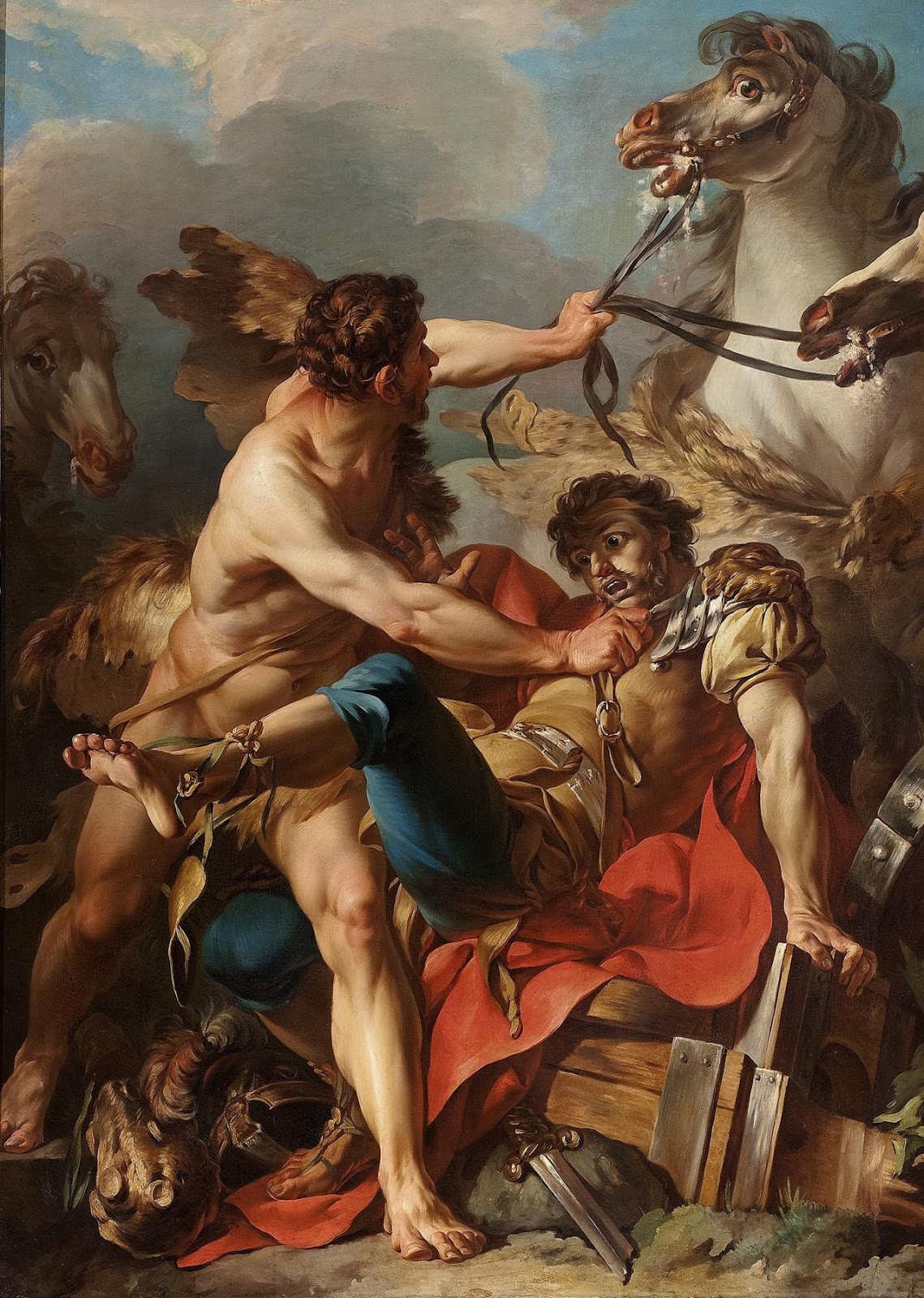Hercules and the Mares of Diomedes
The Epic Conquest of the Immortal Steeds of the Brutal King
Hercules had already completed six labors, while Eurystheus was desperate because his nephew had not suffered any harm. This time, however, Eurystheus decided to send him on an extremely dangerous labor. He would send him to Thrace to obtain the horses of Diomedes. Diomedes was the king of Thrace and the son of the god Ares. Ares had given Diomedes four horses that fed on humans instead of grass. It was also said that every stranger who arrived at Diomedes' palace served as food for his horses. Hercules had the mission to confront Diomedes and bring the horses from Thrace to the Peloponnese.
He set out on his long journey and after many days arrived at the palace of the king of Thessaly, Admetus. Admetus had been cursed by a god to die young. He could only be saved if one of his relatives voluntarily took his place on the deathbed.
Admetus fell seriously ill and was ready to die. However, neither his father nor his mother wanted to sacrifice themselves to save their son. Only the beautiful Alcestis, his wife, decided to take his place.
When Hercules arrived at the palace, Admetus had already recovered and was standing, but Alcestis was on the verge of death. Then Hercules, moved by Alcestis' sacrifice, decided to save her. He entered her room alone, and when he saw Death, who was ready to take her soul, he tried to confront him. A fierce struggle with Death followed, and after a confrontation, he managed to defeat him and save the beautiful queen.
His incredible feat impressed Admetus and the inhabitants of Thessaly. The happy couple begged Hercules to stay with them as long as he wished, so they could express their gratitude for the good he had done.

After sufficient rest at Admetus' palace, Hercules continued his journey towards Thrace. Upon arriving at the palace of Diomedes, he received a warm welcome from Diomedes, who gladly accepted Hercules. Initially, Diomedes did not know the identity of the stranger and intended to execute him, wanting to satiate his wild horses' hunger with his body. However, Hercules realized Diomedes' intentions, and when Diomedes' warriors attacked to kill him, he managed to defeat them.
Then Diomedes rushed to kill the stranger. He was fierce and ruthless like his father, the god Ares. The two adversaries engaged in a furious battle and fought for quite some time. Eventually, as they fought their way to the stable where the wild horses were tied, Hercules managed to overpower Diomedes. Then, he threw him in front of his horses, which devoured him immediately. Thus, Diomedes was severely punished for his actions, as he had mistreated strangers. The same fate befell him, as his wild horses killed him.
When the horses slowed down and were sated, Hercules easily managed to tame and bind them. After freeing the horses from their heavy chains, he took them with him to the Peloponnese. Over time, the horses were domesticated, and their breed lasted until the time of Alexander the Great. It is even said that Alexander's own horse, Bucephalus, belonged to the breed of Diomedes' horses.